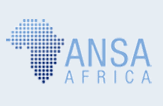ODI: Practical approaches to the aid effectiveness agenda
09 July 2010
ODI
This paper explores the link between donor aid and recipient budgets, and the role that greater transparency and clearer information about aid can play in improving budget transparency, the quality of budgetary decisions and accountability systems in developing countries. This paper makes a contribution towards linking classifications of aid and public expenditure, and also makes recommendations on how to facilitate the transfer of information about aid from donor to recipient governments, particularly aid that is not spent through recipient country budget systems.
Current work in the field of aid and budget linkages and aid effectiveness is making significant progress towards an understanding of the issues and towards implementation of technical solutions that fit with the Paris Declaration principles. For example, a recent study by Mokoro (2008) undertakes a detailed analysis of the parameters of ‘putting aid on budget'. In addition, the International Aid Transparency Initiative (IATI) has been set up to design and implement a comprehensive and transparent standard for donors to publish information about aid.
This study intends to build on this work in two ways. The first is to add to the literature on aid and budget linkages and aid effectiveness by examining and documenting the similarities among a sample of aid-recipient country budgets, within an analytical framework that uses two different international classifications for describing aid and government expenditure. The second is to construct a generic functional classification derived from the sample of aid-recipient country budgets and using lessons from the comparison exercise. This proposal was designed primarily to demonstrate the similarities and differences between country budget structures and international classifications rather than to prescribe a common format.
The paper proceeds in the following way. Section 2 defines the problem to be addressed and provides some background. Section 3 describes the methodology of the research. Section 4 presents the findings in detail. Section 5 concludes and lays out recommendations arising from the research.
* By Samuel Moon with Zachary Mills;Working Paper 317: Results of ODI research presentedin preliminary form for discussionand critical comment
Keywords: donor aid, budget monitoring,
|

